The biggest esports scandals of the past 10 years
Corporate catastrophes, cheating incidents, and heated gamer moments.
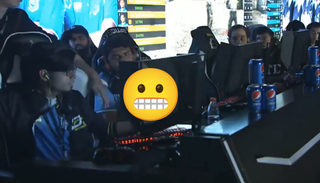
Esports is an industry built by a legion of compulsive, uber-competitive gamers who've achieved inconceivable fortune and fame through the power of playing videogames. It is bankrolled by a rogues gallery of megarich sports owners who are happy to milk the venture for all of its lucrative upside, without any long-term investment in the culture or the hobby. The fans they cultivate are ravenous, sectarian, and obsessive—known for analyzing the faintest whiff of backscenes drama with the keen attentiveness of a particularly scrupulous Taylor Swift fan. With all of those elements in place, what could possibly go wrong?
Yes, esports has been the site of many controversies over the past 12 years. Some of them are small and contained to a distinct niche, and others are messy and borderline criminal, capable of tanking entire organizations. Together, this list serves as a time capsule of the industry's white-hot zenith in the mid-2010s, when an obscene amount of cash was being dumped into the pro-gaming bubble, allowing for countless incidents of overexposure, fraudulence, and clueless management. In 2022, stories like these are becoming progressively more rare. The feeding frenzy has moved on, providing more space for the genuine, dyed-in-the-wool esports organizations to thrive—and those grassroots companies are less interested in a pump-and-dump scheme. That's a good thing, even if I sometimes miss that age of wanton overindulgence. Read on, and despair.
Forsaken brings an aimbot to a Counter-Strike tournament
Aimbots are treated punitively no matter where a player is competing. If you're grinding through the Counter-Strike ladder—without any money on the line—and are busted for illicit software, you can expect a quick ban and a lifelong account suspension. So it goes without saying that pulling the same tricks at an official esports competition, with considerably high stakes, you are officially risking it all.
Nikhil "Forsaken" Kumawat did not get that memo when he rolled up to the eXtremesland tournament in 2018. His aimbot alerted the anti-cheat software, and cameras caught him frantically attempting to delete the contraband off his computer as tourney regulators rolled up to confiscate his PC. (Those images, in the video above, have become something of an in-joke in the Counter-Strike community.) Forsaken earned himself a lengthy prohibition from professional play, and is now retired. Can't say I'm all that surprised.
Over 30 CS:GO coaches caught cheating
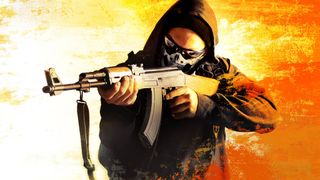
Another CS:GO cheating scandal followed in 2020, when it was discovered that at least 37 pro CS:GO coaches had exploited a bug which allowed them to spectate the map freely during matches and relay information to their team. They were sanctioned by the Esports Integrity Commission, and in 2021 by Valve itself, which permanently banned four coaches and created a new rule which disallows non-players from joining the server during competitions. (Also in 2021, 35 CS:GO players were suspended for betting on matches. It was a scandalous year for CS:GO!)
CS:GO again, but this time it's drugs
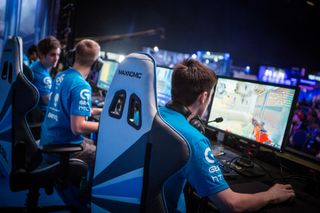
In 2015, the ESL stated that "esports needs to mature" after a member of North American CS:GO team Cloud9 revealed that the team was "all on Adderall" at ESL One Katowice, and suggested that "everyone" at the event takes the stimulant, which is used to treat ADHD. After the incident, the league instituted randomized drug testing.
CS:GO one more time: skin gambling
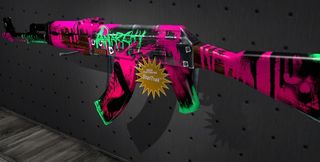
In 2016, the practice of CS:GO skin gambling erupted into an enormous controversy with years of fallout, including scandals involving rigged promo videos and undisclosed advertising, state intervention, and multiple lawsuits.
The biggest gaming news, reviews and hardware deals
Keep up to date with the most important stories and the best deals, as picked by the PC Gamer team.
Echo Fox implodes

Looking back, I don't think any organization quite encapsulated the gilded excess of the esports boom quite like Echo Fox. It was a company formed by Rick Fox, a veteran NBA swingman who was known more for his startling good looks than his basketball ability. They immediately started fielding players in every conceivable pro-gaming scene—which was customary at the time. (Can you believe that H1Z1 once had an esports format? Man oh man.) But then it all came tumbling down in 2019, as Fox and his business partners filed dueling lawsuits at each other, with the former accusing the latter of using racist language and fraudulent business practices, and the latter making charges of "grossly inept management." We've never gotten the concrete specifics of what caused the fissure, but Echo Fox remains a microcosm of just how quickly an esports organization can flame out in spectacular fashion. There's a lot of dumb money in this industry; then, now, forever.
Life fixes StarCraft matches, ends up in jail
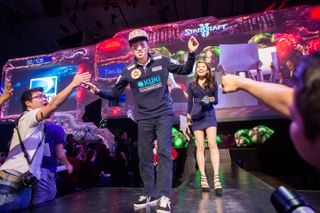
This is easily the most famous esports scandal in history, if only because the principal offender landed in actual jail for their indiscretions. Life, aka Lee Seung-Hyun, was once a top name in Korea's uber-popular StarCraft competitive community. He was singularly dominant in the early 2010s, during the halcyon days of StarCraft 2. But then, in 2016, law enforcement started scrutinizing his career. As it turns out, Life had a gambling problem, and he was tied up in a match-fixing ring where he intentionally threw games for massive payouts from the Korean sportsbooks. Life earned a lifetime ban from competition and an 18-month stint in prison as punishment. He has never played professionally again. It's representative of just how gigantic the business of videogames has become. In our strange, cyberpunk modernity, it is possible to serve time for StarCraft.
Major match fixing scandals have also rocked the other esports, including CS:GO and Dota 2.
Andy Dinh lets his temper get the best of him

Andy Dinh is a miraculous pro gaming success story. He entered the industry as a neophyte—a humble League of Legends grinder—and slowly grew his esports organization, Team SoloMid, into an international juggernaut. Unfortunately, as The Washington Post reported last year, Dinh also routinely berated his staff members and created a bitter, toxic environment in the TSM offices.
When that report hit the internet, League of Legends authorities conducted their own investigation, which resulted in a two-year suspension and a $75,000 fine due to "a pattern and practice of disparaging and bullying behavior exhibited by Andy Dinh toward TSM players and staff members." It's one of the tensions in the rapid rise of esports—all of these companies, at the end of the day, are startups, and startups often lack the structure and accountability of more seasoned businesses. (Although that doesn't mean more seasoned businesses don't ever have the same problems, as we've seen in the games industry in particular.)
Carlo "Kuku" Palad's heated gamer moment
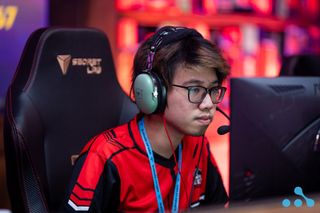
Carlo "Kuku" Palad, an off-laner for the Dota 2 team TNC Predator, was preparing for the 2019 Major in Chongqing, China when an old comment came home to roost. In 2018, Kuku was losing in a public match against another Chinese squad, and just before the final curtains dropped, he typed the words "ching chong" into chat. You do not need to be an expert in cryptology to see that as an obvious, racially-charged slur towards his opponents, and pressure mounted in China to disallow Kuku from playing in the event.
At first, Valve sat on its hands, but as the controversy refused to evaporate (and after TNC Predator balked at any specific reprimands for their player), the company eventually did disinvite Kuku from playing in the major. Like any gaming flap that's tied up in greater Sino-American relations, rumors swirled that the Chinese state itself had a hand in coercing Valve to action. (Sure enough, the Chongqing government did also impose their own restrictions on Kuku from entering the city.) Years later, Kuku remains a successful Dota 2 pro, but I doubt there's any love lost between him and the game's Chinese contingency.
Blitzchung pokes the bear
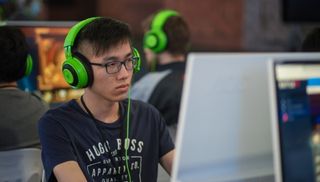
Staying on this theme, in 2019, a Hearthstone pro named Blitzchung, aka Ng Wai Chung, won a Hearthstone Grandmasters tournament in Taiwan. At the end of his victorious interview, Blitzchung proclaimed "Liberate Hong Kong, the revolution of our times" in support of the protests against Hong Kong's extradition bill occurring at the time. Blizzard responded with a ridiculously stringent punishment, which onlookers quickly attributed to pressure from the Chinese government, which is famously sensitive to these speech violations. Blitzchung was forced to relinquish his prize money, and earned a suspension from competitive Hearthstone for a year, which resulted in widespread exasperation from Blizzard fans, including a straight-up boycott. Blizzard later returned Blitzchung's winnings and reduced the ban to six months, admitting that it acted too quickly, but denying that either pressure from the Chinese government or the content of Blitzchung's statement factored in its decision.
This is foremost an esports controversy, but it was also the first major blow in Blizzard's ongoing fall from grace; one that set the stage for the layoffs, the Activision Blizzard union-busting, and now, the years of alleged gender discrimination that preempted the in-progress sale to Microsoft. After Blitzchung, it's been all downhill for one of the most iconic videogame makers of all time.

Luke Winkie is a freelance journalist and contributor to many publications, including PC Gamer, The New York Times, Gawker, Slate, and Mel Magazine. In between bouts of writing about Hearthstone, World of Warcraft and Twitch culture here on PC Gamer, Luke also publishes the newsletter On Posting. As a self-described "chronic poster," Luke has "spent hours deep-scrolling through surreptitious Likes tabs to uncover the root of intra-publication beef and broken down quote-tweet animosity like it’s Super Bowl tape." When he graduated from journalism school, he had no idea how bad it was going to get.
- Tyler WildeEditor-in-Chief, US
Most Popular

